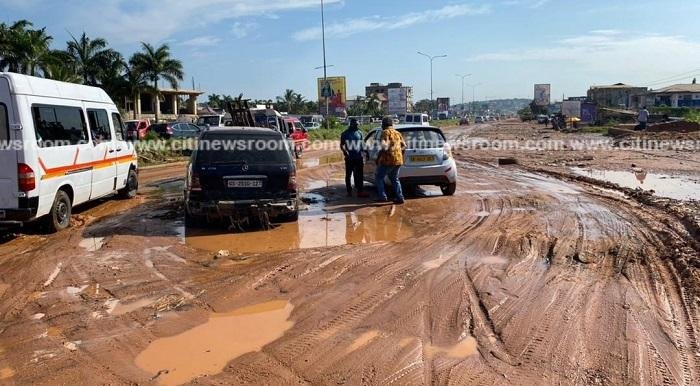Editorial
Take second look at Kasoa road network

Dear Editor,
Last week, commuters to parts of Dansoman and Odorkor, stretching to Kasoa and its environs engaged in a forced keep fit exercise as a result of heavy rains that hits the capital.
These commuters had to walk very long distances to their various homes or destination where they can get vehicles home.
As a daily traveller on that road, walking from Kwame Nkrumah Circle area to the West Hills Mall came as a nightmare to me.
This was because the rain rendered parts of the road unmotorable, creating a gridlock which made passengers in vehicles even abandon them to continue their journey on foot.
Few days after when the skies formed, indicating another rain was coming, workers on that route abandoned work and left for their respective homes to avoid a similar situation.
This is the reason why the government must take a second look at the Kasoa road infrastructure to ensure that the rush for workers to leave early do not affect productivity.
That problem has been there for a long time but it appears calls to get it rectified always fall on deaf ears.
With the average Ghanaian burdened with many tax introductions, it is only fair that some of these concerns are considered to make life a little bearable.
Ohene Ntow, Kasoa
Editorial
Kudos to Ho Teaching Hospital staff, but …
Dear Editor,
If there is any group of professionals that get bad-mouthed the most, then you are referring to nurses and medical doctors assigned to public hospitals across the country.
For this particular letter, I want to sing the praises of this same group of professionals that work at the Ho Teaching Hospital, famously known as Trafalgar.
Despite the work load and the mass casualties received at the emergency ward of the hospital, the welcoming nature of the nurses and the professional touch by the doctors can’t be ignored. My personal experience has got me travelling from my base in Accra to seek medical services from these professionals.
Special mention has to be made of the likes of Precious of the Pharmacy Department, Dr Brandon Banor (a maxillofacial resident) of the Dental unit, male nurse Justice assigned to the female surgical ward. Words cannot really do justice to their affable, professional caring nature. A simple thank you is all that I can say.
In the same vein, I can’t but call out the bad attitude of the auxiliary staff and contractors of the hospital.
Chief among them is some of the contracted bank staff that handle the payment section of the hospital and the patient registration section (those that check the status of the patient as to whether they are fee paying patients or NHIS sponsored).
The attitude at times leaves a bad taste in the mouth. One such occurrence was a night staff of the registration section who had her legs on the office table whilst talking to patients.
The CEO of the hospital needs to shine his torch light on this support sections before they erode the awesome performance of the direct medical staff of the hospital.
Thank you for the space.
Kwesi Manu
Accra
Editorial
Develop policies to address disability concerns
Dear Editor,
AT the beginning of the year, when I went to the bank to deposit money into my uncle’s account, I observed a very sad situation where a man in a wheelchair struggled to navigate his way around the facility.
This is because the structure is disability unfriendly.
As I stood and watched how the man struggled to move his wheelchair, I felt sad and wondered if this is how the life of a disabled person should be. It becomes worse if there is no one to offer help.
In Ghana, People With Disabilities (PWDs) are often treated differently and are often subjected to all forms of discrimination.
Most of these people find themselves in such a situation as a result of unfortunate happenings such as accidents and injuries.
It is, therefore, not appropriate for anyone to discriminate against them. Discrimination against such persons take many forms, including how buildings are constructed.
Most of the public structures are not disability friendly and impede their movement.
As a country, we should consider the PWDs in designing our structures. I also think that there should be a national policy that seeks to address this issue.
I have a strong conviction that when such a policy is developed by the government, people with disabilities would feel appreciated and also promote social inclusivity.
Ray,
Kasoa







